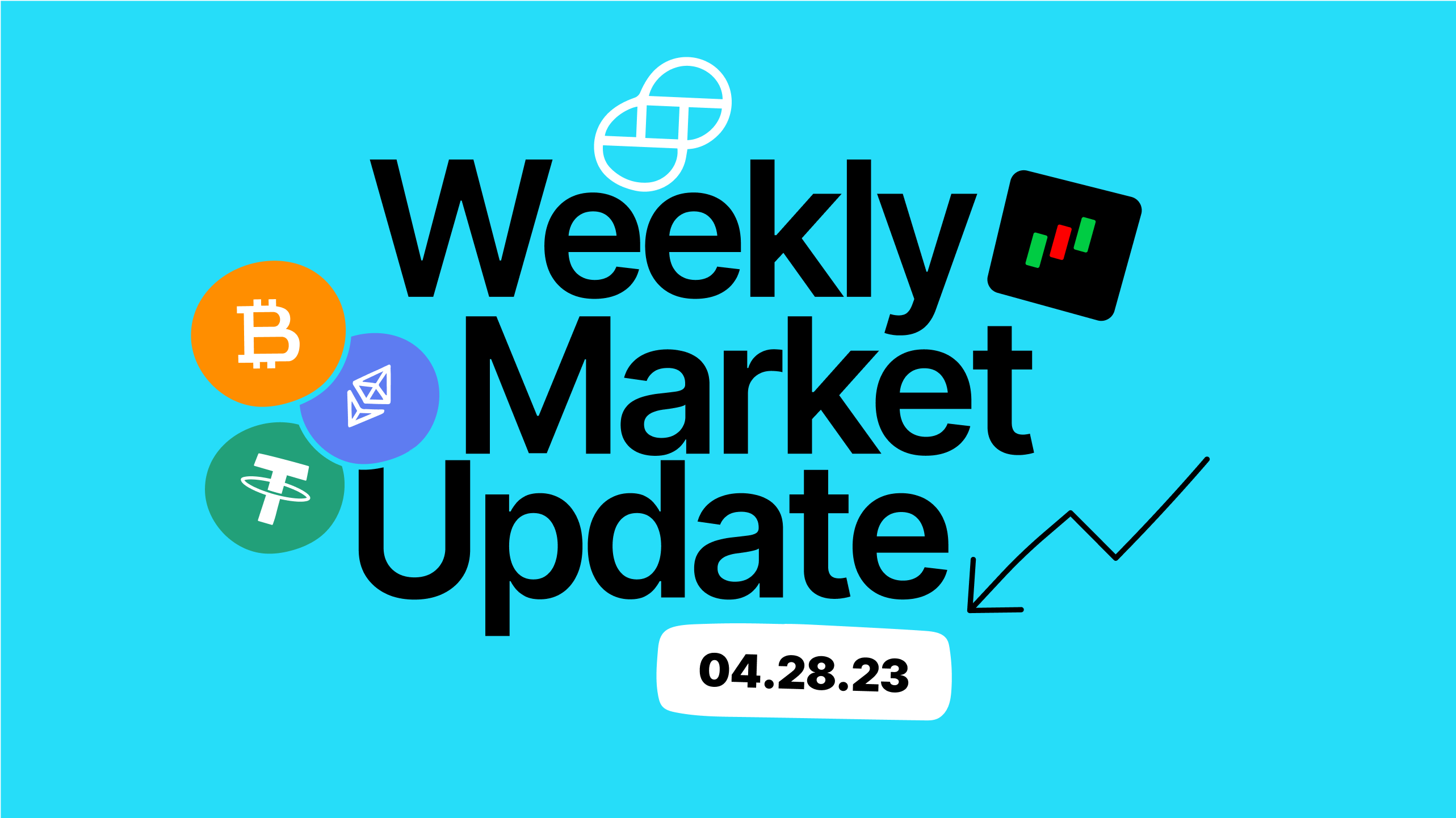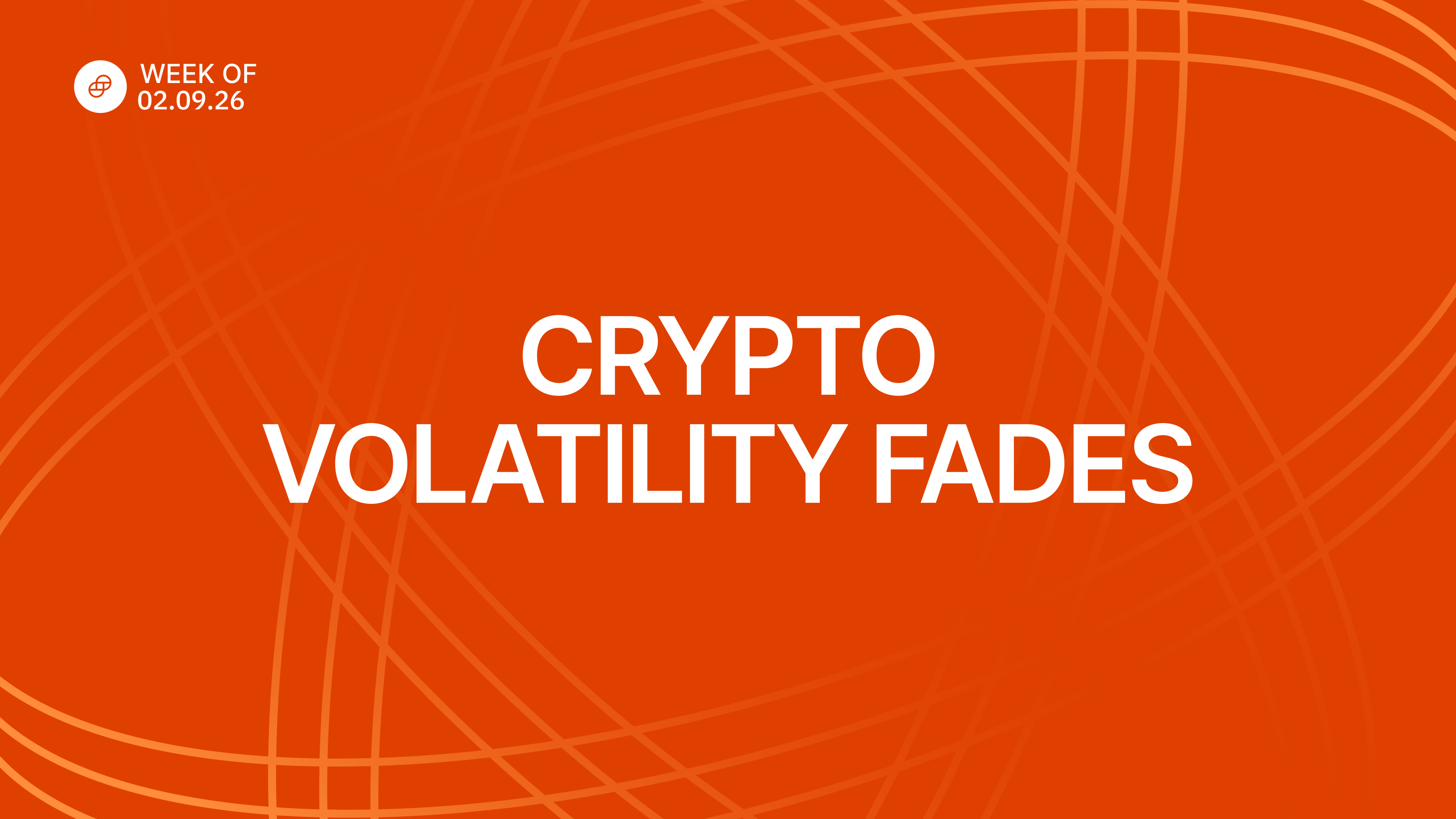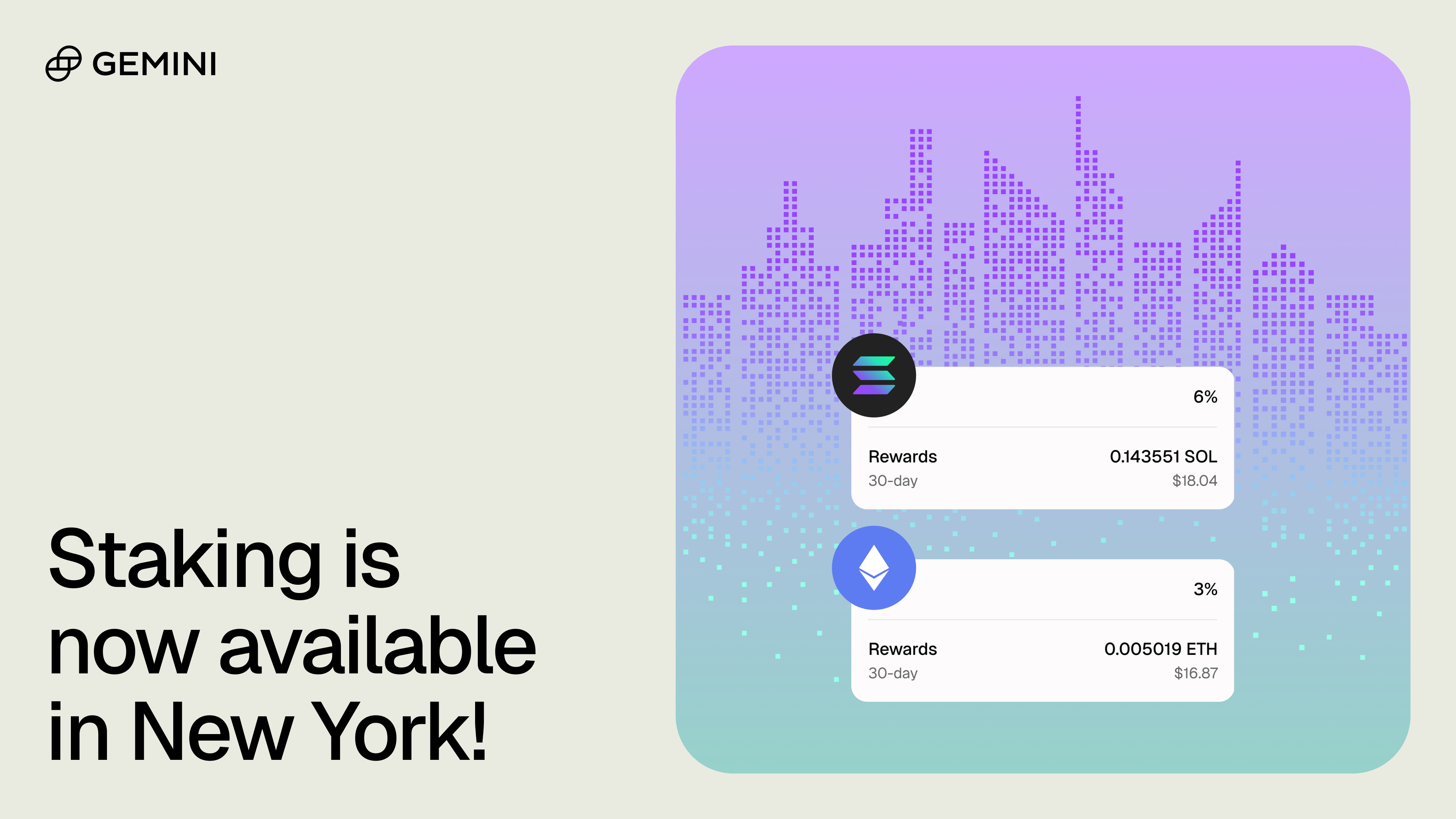APR 28, 2023
Weekly Market Update - Friday, April 28, 2023

Welcome to our Weekly Market Update.* Explore weekly crypto price movements, read a quick digest of notable market news, and dive into a crypto topic — this week we discuss the origins of Bitcoin.

| ⬆️ 4.00% | $29,141
| ⬇️ 0.93% | $1,885
| ⬆️ 61.50% | $7.717
| ⬆️ 43.40% | $2.478
| ⬇️ 10.50% | $0.1046
Crypto prices as of Friday, April 28, 2023, at 11:55am ET. Percentages reflect trends over the past seven days. . All prices in USD.

Takeaways
- Crypto prices had a wild week, with bitcoin (BTC) dropping almost 8% in the span of an hour at one point before rallying back to hover around $29k USD.
- Celsius went up for auction and a deal for Voyager was canceled. Coinbase sued the SEC in an effort to compel regulatory clarity.
- In the wider economy, trouble at First Republic Bank has reignited concerns across the banking system.
Bitcoin Rises Again During a Rollercoaster Week
rallied to $30k USD early this week, with new signs of strain in the U.S. banking system spurred by concerns at First Republic Bank . rallied in sympathy, closing in on $2,000 USD once again.
On Wednesday, a fast and furious selloff in the afternoon Eastern Time saw drop almost 8% within an hour. Traders pointed to a sent by Arkham Alert noting activity in crypto wallets belonging to defunct exchange Mt. Gox and the U.S. government, of supply flooding the market. Arkham later that the notification was sent in error.
Following the selloff, rose off the week’s lows and is trading around $29k USD as of Friday morning. ’s price action responded similarly, trading around $1,900 USD on Friday. This past week’s price moves were reflected , which hit as high as ~73%. BTC and ETH prices whipsawed and are +4% and -1% this week as of Friday morning, respectively.
Defunct Crypto Lender Celsius Goes Up For Auction
Crypto lender Celsius, which declared bankruptcy in the summer of 2022, in New York this week. According to reports, two new consortiums have entered the fray. Under an existing bid for the crypto lender, customers may get up to 70% of their funds returned.
Previous court filings show that , with liabilities of $5.5 billion USD and assets amounting to $4.3 billion USD.
Binance.US Terminates Deal to Buy Voyager’s Assets
Voyager, another victim of crypto’s rocky 2022, said on a deal to purchase its assets for $1 billion USD. Voyager said it was disappointed in the outcome, but clarified that its existing bankruptcy plan would allow for customers to receive crypto and cash that had been tied up.
Binance.US suggested that in the U.S. around crypto played a role in its decision to cancel the deal. The U.S. Department of Justice had also , seeking to block it. The government ultimately to the deal.
Coinbase Sues SEC Asking for Regulatory Clarity
On Monday, in federal court hoping to compel an answer on whether the rule-making process governing securities applied to the crypto industry as well. This sets up the potential for Coinbase to challenge that the SEC has failed to provide a well-defined regulatory framework for U.S.-based crypto companies.
First Republic Bank Reignites U.S. Banking Concerns
First Republic Bank, , revealed this week that it saw in Q1. The bank’s stock hit a new all-time low, dipping ~55% this week. Just this year, .
The troubled bank has since been said to be in an attempt to right the ship. In March, major U.S. banks in hopes that it could avoid a similar fate to SVB, Signature, and Silvergate.
-From the Gemini Trading Desk

The Origins of Bitcoin
Most of us think of Bitcoin as the original cryptocurrency, as it spawned an entirely new asset class. While its impact on the financial system and the wider world has been profound, there were a few much lesser known precursors that laid the foundation for the crypto universe. Today, we look back to the roots of Bitcoin. To read more deeply about this topic check out .
What came before Bitcoin?
Bitcoin has played a unique role in creating a movement to decentralize existing, centralized financial services, but it was not the first attempt at creating digital money.
The notion of scarcity with respect to digital money was famously envisioned by when he in 1998. B-Money, another conceptual precursor to Bitcoin proposed by Wei Dai, a computer engineer, , and cryptographer, arose around the same time and is referenced in the Bitcoin whitepaper.
Going even further back, the idea of building cost (or digital scarcity) into a system using was first conceptualized by Cynthia Dwork and Moni Naor in 1993 as a way to protect Internet services from abuse such as spam. In 1997, an English Cypherpunk named Dr. Adam Back implemented this concept into his project Hashcash, a service aimed at limiting spam and denial of service attacks by requiring a sender to generate a Hashcash token by solving a PoW puzzle.
.
Together, Bit Gold, B-Money, Hashcash, and other early examples of digital money and consensus mechanisms set the stage for Bitcoin.
Bitcoin arrives on the scene
was published by the mysterious in 2008 and the network launched in January of 2009 upon the mining of the “” — the first block of the Bitcoin blockchain. Bitcoin created a digital currency that operates in a fully-decentralized, trustless manner that allows users to send monetary value to each other through the Internet without the need for trusted, financial intermediaries.
This was made possible by a major breakthrough in its PoW . Instead of relying on a majority of (known as “”) to reach consensus, Bitcoin relies on the majority of hashrate — the network’s processing power — to reach consensus.
.
Acquiring a majority of the network’s is expensive, making it costly for a miner to tamper with the . Moreover, in doing so, a dishonest miner would forgo the handsome bounties of newly minted bitcoin (known as the “”) that are awarded approximately every 10 minutes to the “winning” miner who correctly solves the PoW puzzle. Therefore, it is assumed that a rational, economically-motivated miner will commit her processing power toward securing the integrity of the blockchain instead of trying to manipulate it and cheat the system.
This incentive structure has turned digital money, a movement once made up predominantly of computer scientists and cryptographers, into an increasingly mainstream phenomenon.
Check out more about the , its , and how it's .
See you next week. Onward and Upward!
Team Gemini
*This material is for informational purposes only and is not (i) an offer, or solicitation of an offer, to invest in, or to buy or sell, any interests or shares, or to participate in any investment or trading strategy, (ii) intended to provide accounting, legal, or tax advice, or investment recommendations, or (iii) an official statement of Gemini. Gemini, its affiliates and its employees do not make any representation or warranty, expressed or implied, as to accuracy or completeness of the information or any other information transmitted or made available. Buying, selling, and trading cryptocurrency involves risks, including the risk of losing all of the invested amount. Recipients should consult their advisors before making any investment decision. Any use, review, retransmission, distribution, or reproduction of these materials, in whole or in part, is strictly prohibited in any form without the express written approval of Gemini.
RELATED ARTICLES

WEEKLY MARKET UPDATE
FEB 12, 2026
US Jobs Report Beats Expectations, BlackRock Launches Tokenized Treasury Fund On Uniswap, and Crypto Lobby Meets To Solve CLARITY Act Impasse

COMPANY
FEB 10, 2026
Gemini Staking Is Now Available for New York Customers

COMPANY
FEB 05, 2026